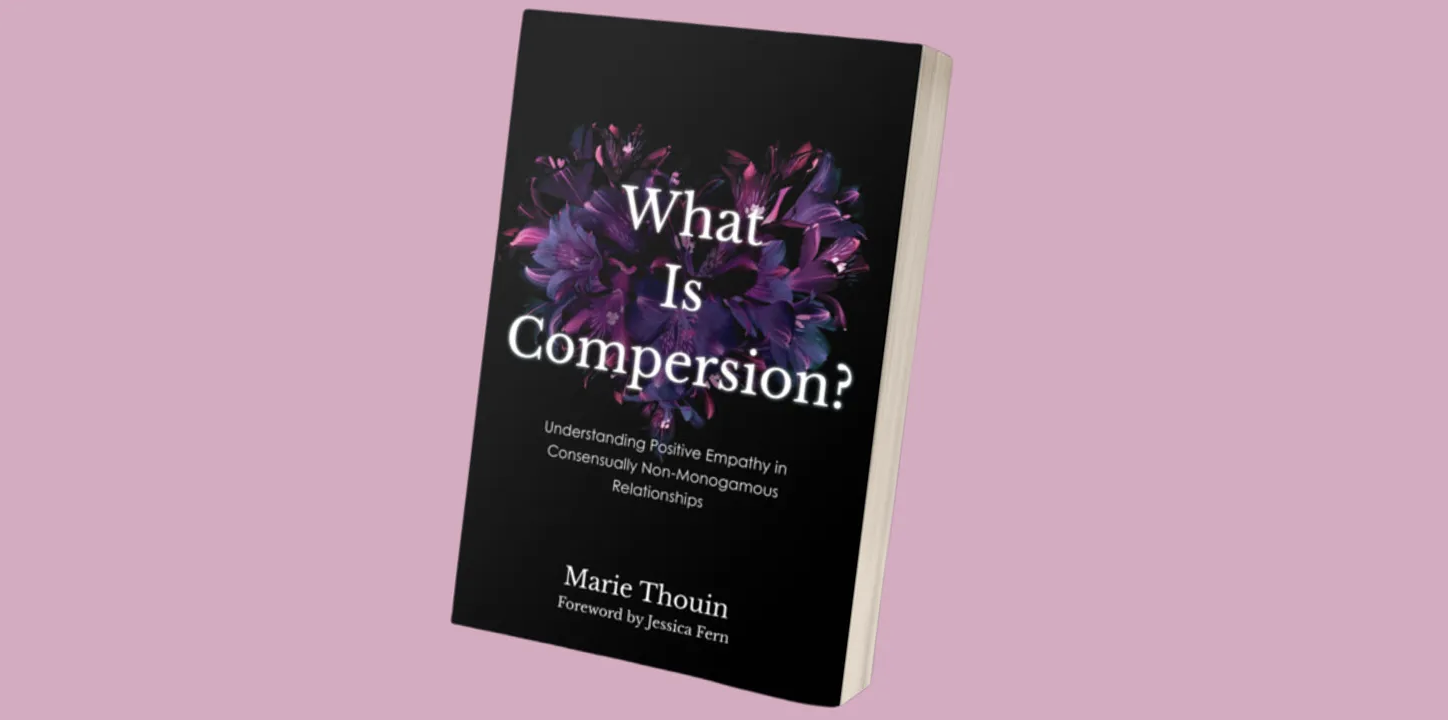Learning Compersion: Teaching Empathic Joy to Kindergartners
This blog explores the concept of compersion—finding joy in others' happiness—through the lens of a kindergarten classroom. The author, a teacher, notices how children struggle with jealousy when peers are chosen for special roles, like line leader. Determined to shift this mindset, they introduce compersion as the opposite of jealousy, designing an engaging lesson to help young students recognize and practice it. Through art projects and classroom activities, the kids begin learning to celebrate each other's successes. The blog highlights the power of teaching empathy and shared joy from a young age.
Compersion in Everyday Life: Finding Empathic Joy Beyond Polyamory
This blog dives into the transformative power of compersion—the radical joy of seeing someone thrive, even when it doesn’t directly benefit you. While the concept is usually tied to polyamory, the author flips the script, showing how compersion can enrich any relationship, from monogamous partnerships to parenting. Through raw and revealing personal stories—battling jealousy over a partner’s obsession with learning French, confronting competitive instincts at a child’s basketball game, and discovering unexpected happiness in an ex-husband’s new love—the author exposes how a scarcity mindset holds us back. Compersion isn’t just a polyamorous ideal—it’s an invitation to experience love, connection, and abundance on a whole new level.
From Emotion to Orientation: Expanding Our Understanding of Compersion
In this blog, philosopher Shaun Miller explores compersion not just as an emotional response in non-monogamous relationships, but as a fundamental orientation to human connection. He reframes compersion as a way of being—one rooted in deep caring, collaboration, and mutual flourishing. The blog also challenges the notion that jealousy is compersion’s opposite, suggesting instead that misanthropy—a withdrawal from human connection—stands in contrast. Ultimately, Miller argues that cultivating a compersive orientation is not just about overcoming jealousy but about embracing a radical openness to others’ joy, transforming not only relationships but our very understanding of what it means to be human.
Is Tolyamory Just Polyamory Without Compersion?
Tolyamory—a blend of "tolerate" and "polyamory"—is a term newly coined by sex advice columnist and podcaster Dan Savage to describe a relationship dynamic in which one or both partners of an ostensibly monogamous couple turn a blind eye to their partner’s extramarital sexual activity.
How does it show up? Is it ethical? What does it have to do with compersion? Let’s categorize different types of tolyamory and explore whether it can ever qualify as a form of ENM (ethical non-monogamy).
Demystifying Compersion: Insights from Marie Thouin’s Groundbreaking New Book
Recently, I had the pleasure of speaking with Dr. Marie Thouin, a leading scholar on compersion and the author of the groundbreaking book, What is Compersion? Understanding Positive Empathy in Consensually Non-Monogamous Relationships. Our Instagram Live conversation focused on demystifying compersion and exploring how individuals practicing consensual non-monogamy (CNM) can cultivate this often misunderstood emotion.
Jessica Fern's Foreword to What Is Compersion?
This is the foreword to Marie Thouin’s forthcoming book, What Is Compersion? Understanding Positive Empathy in Consensually Non-Monogamous Relationships. Jessica Fern is a Psychotherapist, Coach, and Certified Clinical Trauma Professional. Jessica is the author of Polysecure: Attachment, Trauma, and NonMonogamy, The Polysecure Workbook, and Polywise: A Deeper Dive Into Navigating Open Relationships.
Following Hatred Into Compersion: Non-Monogamy and Mudita
After emerging from a silent meditation retreat, Dedeker initially believes she has achieved a state of enlightened compersion—the ability to feel joy for her partners' happiness in non-monogamy. However, reality quickly tests this newfound clarity. One partner embarks on an adventure with a metamour who despises them, while another falls in love with a stripper and decides to marry monogamously. The author grapples with jealousy, resentment, and the cultural resistance to compersion, ultimately realizing that true sympathetic joy cannot be forced. Through time, self-reflection, and reconciliation, they discover that compersion is not about suppressing difficult emotions but about healing and allowing joy to arise naturally.
Compersion as resistance
For many non-monogamous folks, their participation in non-monogamy is a form of resisting ideas about love and relationships that were imposed upon us by oppressive social systems. And not only do they reject the notions of how we “should” be in relationships as dictated by standard societal ideals, but they reject the notions of how we should FEEL about relationships as dictated by standard societal ideals, to include the experience of compersion.
COMPERSTRUGGLE
A comperstruggle is when you’re caught between jealousy and compersion. This is what we call the experience of sincerely wanting our loved ones to have a great time with others–aka having a compersive ATTITUDE–but at the same exact time, struggling with painful jealous feelings.
Are You Monoflexible?
Maybe polyamory is not your jam.
Maybe ambiamory—the ability to enjoy both monogamy and polyamory with little to no preference between the two—is still a bit much.
Maybe monogamish sounds vague to you—or 10% more poly than how you really feel.
But maaaybe, just maybe, the idea of strict lifelong monogamy also doesn’t fully apply to you.
There’s a new word for that: monoflexibility. It’s the heteroflexibility of relationships.
Your Jealousy Roadmap
Jealousy is not the enemy. Choosing our responses to it thoughtfully makes it possible for jealousy to enhance our intimacy with self and others, rather than harm our relationships. This blog provides a life-affirming understanding of jealousy’s nature and purpose, as well as 5 steps for navigating this emotion more constructively in consensually non-monogamous relationships and beyond.
Couple-centricity, Polyamory and Colonialism
The blog features scholar Kim Tallbear’s critique of the couple-centric norms prevalent in polyamorous communities. She challenges the assumption that polyamory must revolve around primary relationships, arguing that this mirrors monogamous structures that uphold patriarchal and colonial ideals. Drawing from her Indigenous background, she contrasts the nuclear family model with the extended kin networks she grew up with, suggesting that they offer a more supportive and meaningful structure for relationships. Ultimately, she explores the idea of “decolonizing love," acknowledging the challenges of dismantling colonial relationship structures while seeking alternative, community-based ways of connecting.
How a Pronoiac Attitude can Lead to Compersion
Can the worldview that the Universe is conspiring in our favor (rather than against us) enhance compersion?
Pronoia, as described in Rob Brezsny’s Pronoia Is The Antidote For Paranoia: How The Whole World Is Conspiring To Shower You With Blessings, is the idea that the Universe is conspiring on our behalf; that everything happens for us, not to us. Because it is such a powerful antidote to the pervasive negativity that permeates our conditioned minds, pronoia can be an essential tool for anyone looking to invite more compersion into their lives–whether in consensually non-monogamous relationships or in other contexts.
What Compersion Teaches Us About Relationships
Looking at love as a way to elevate one another, and taking joy in their autonomous, unique, and incommensurable expression—rather than under the lens of conditionality and control—begins with an intention. When we develop a “compersive attitude,” experiences of envy or jealousy can be framed not as a personal affront, but as an indicator that there is an opportunity to fill our individual and relational plates more abundantly.
The Beauty and Power of Incommensurability
Incommensurability can help us to liberate ourselves from the idea that there is an abstract, seemingly universal meaning and function to physical intimacy that poses a constant invitation to compare who does it ‘better’. Incommensurability offers us a view on intimacy that lets us cherish the specificity and uniqueness of each intimate connection for its own sake.














